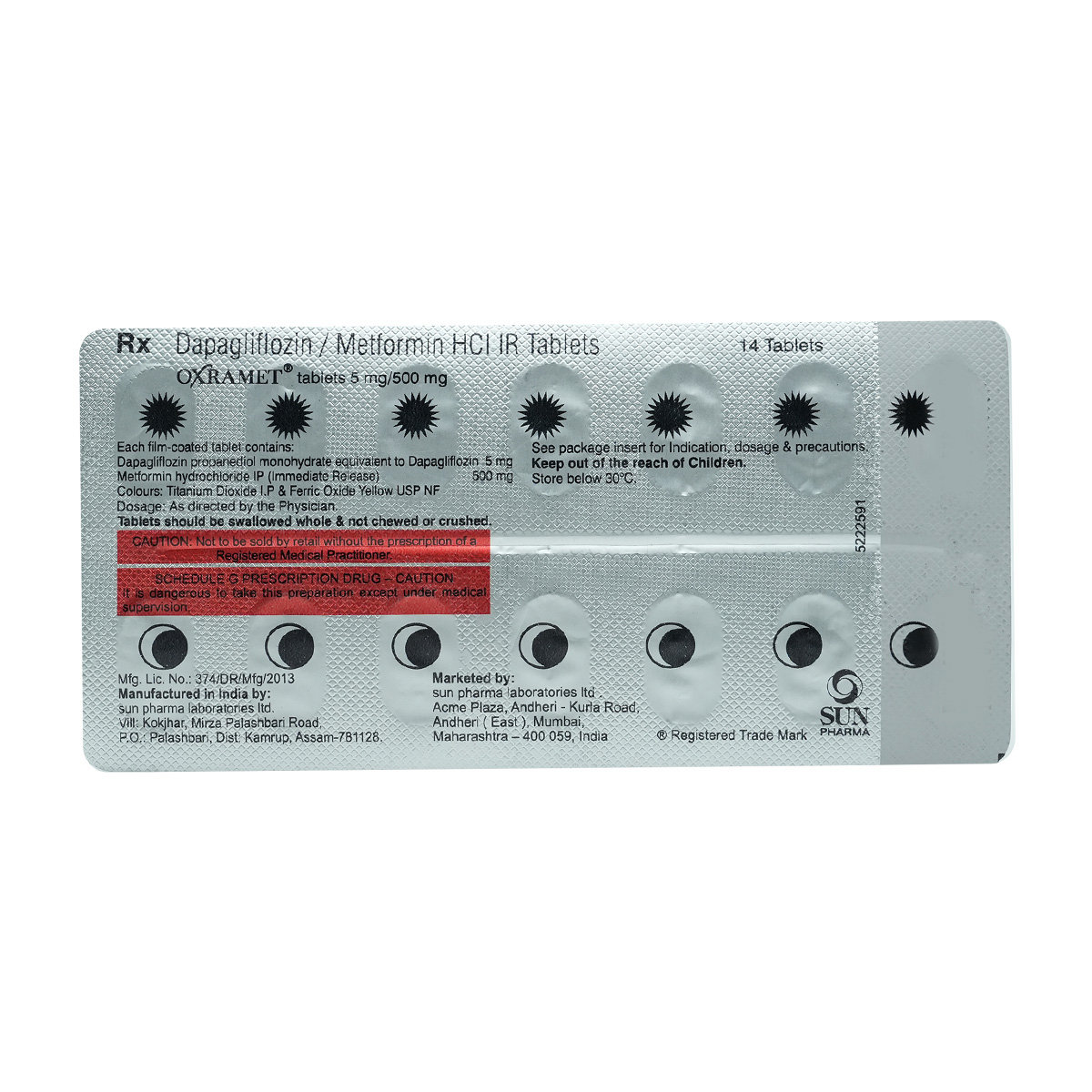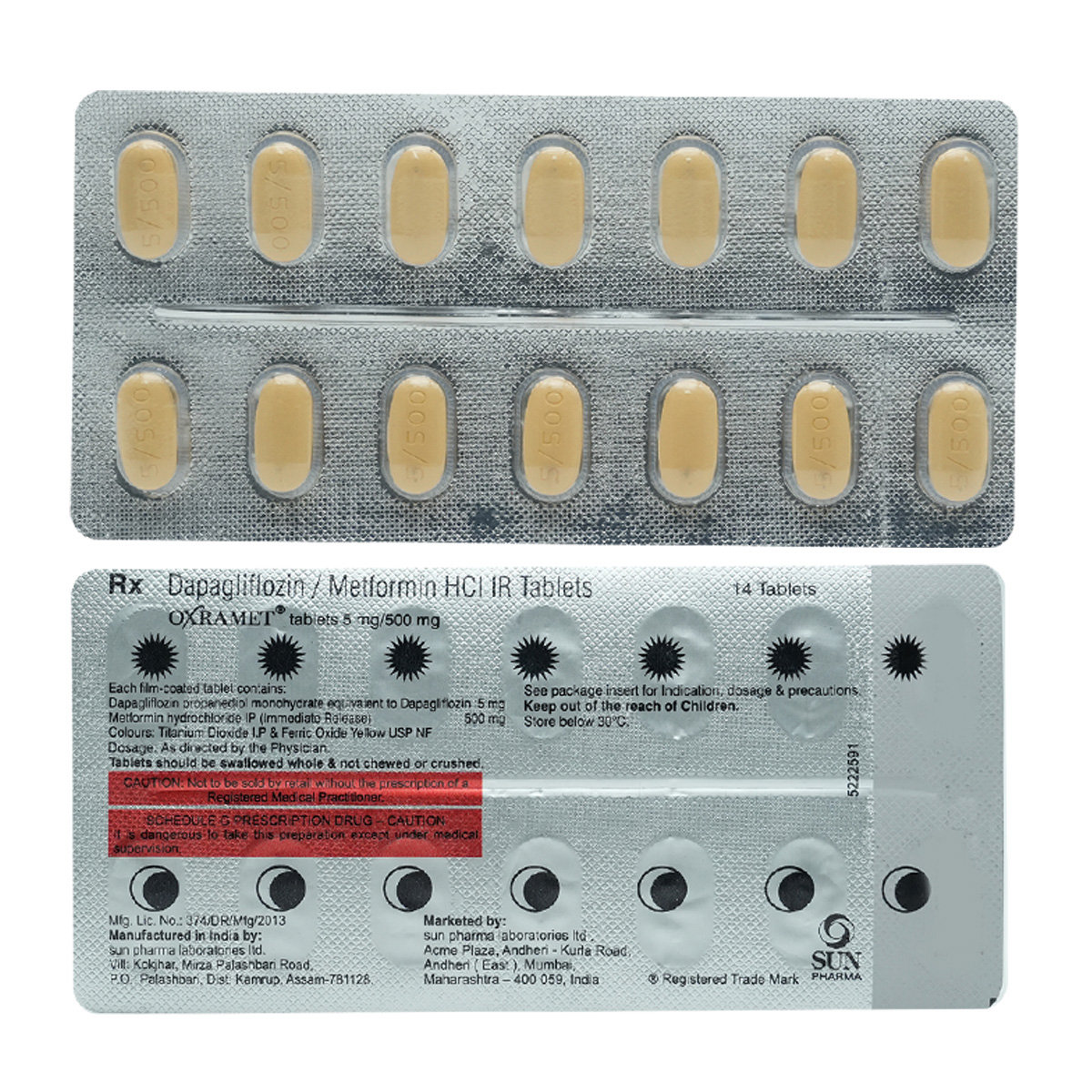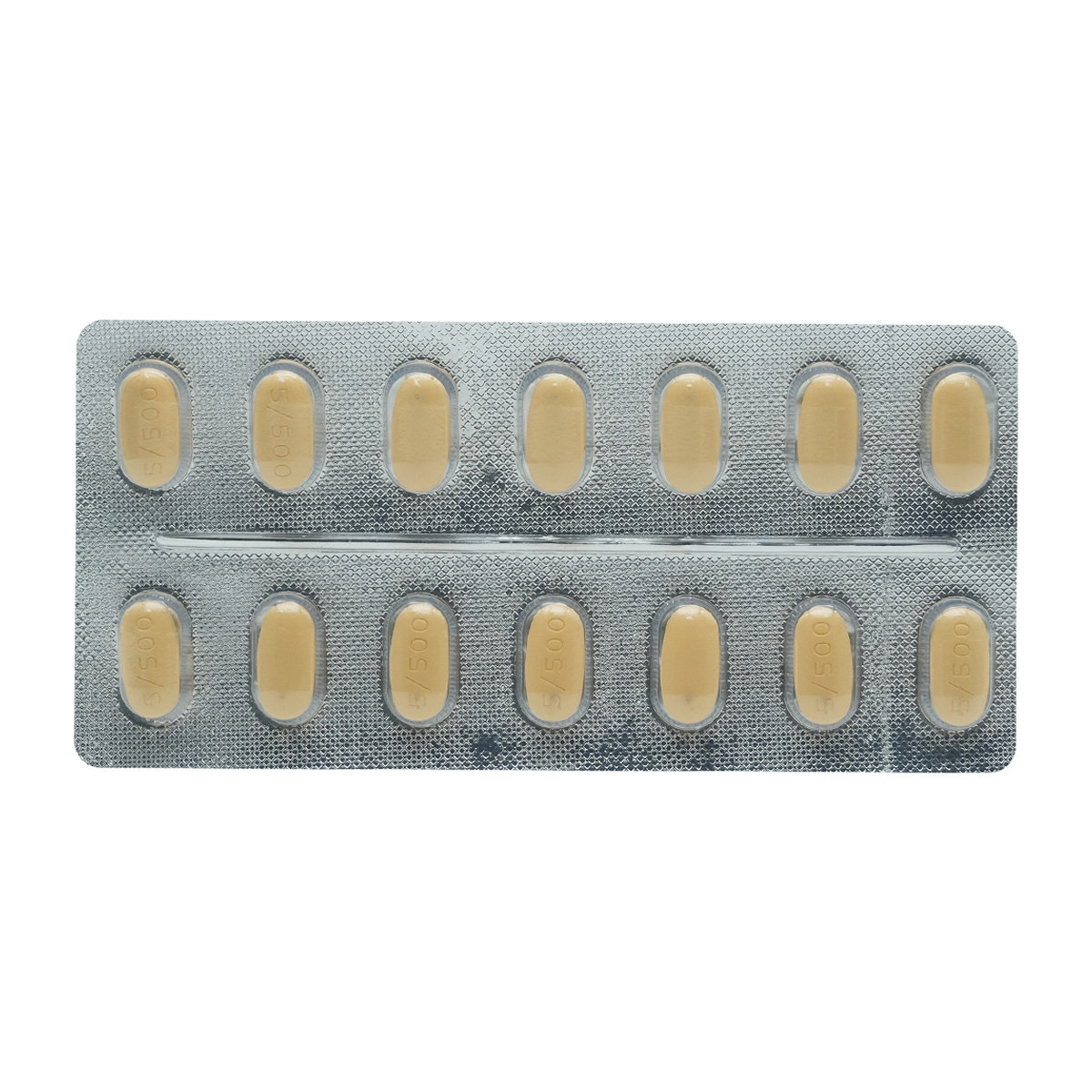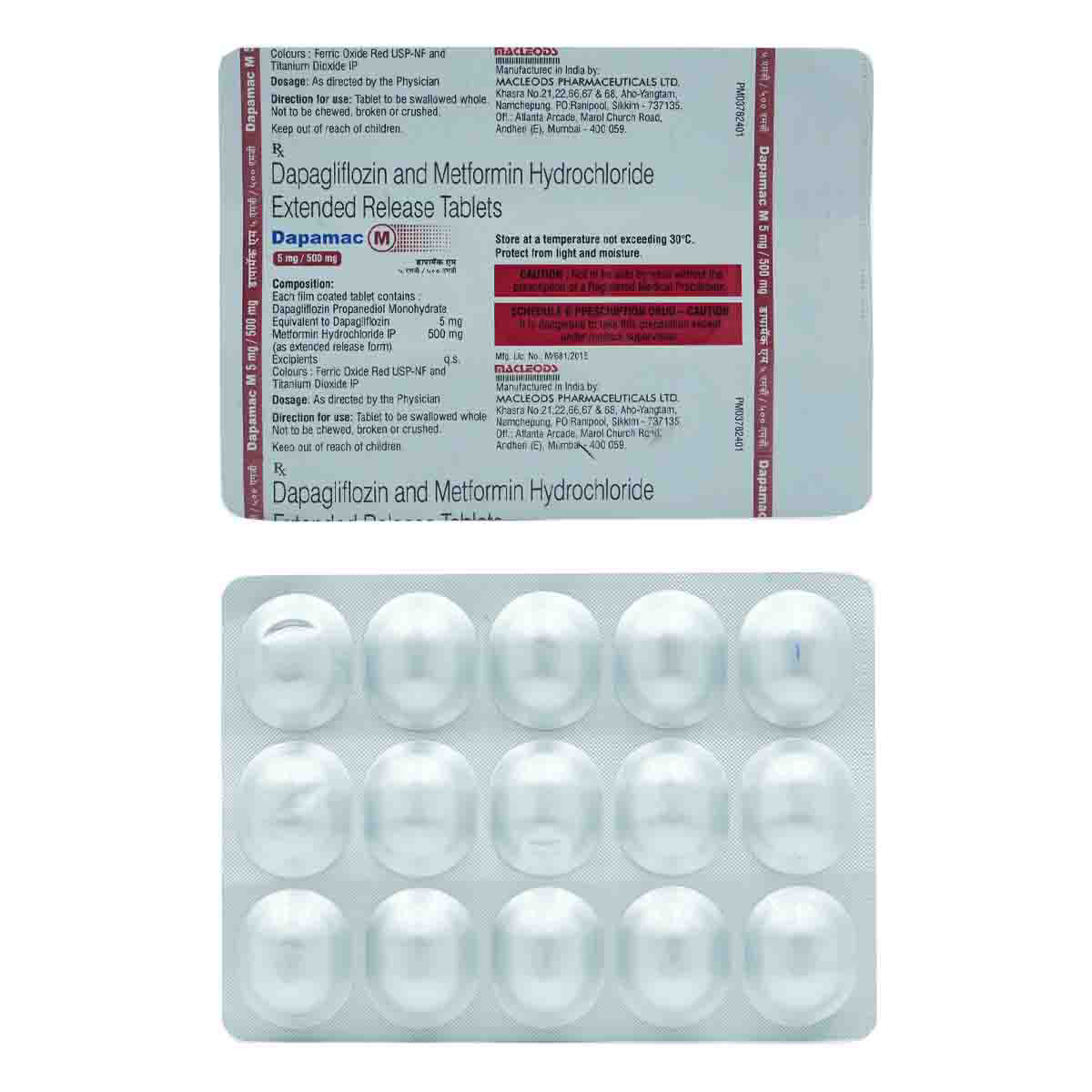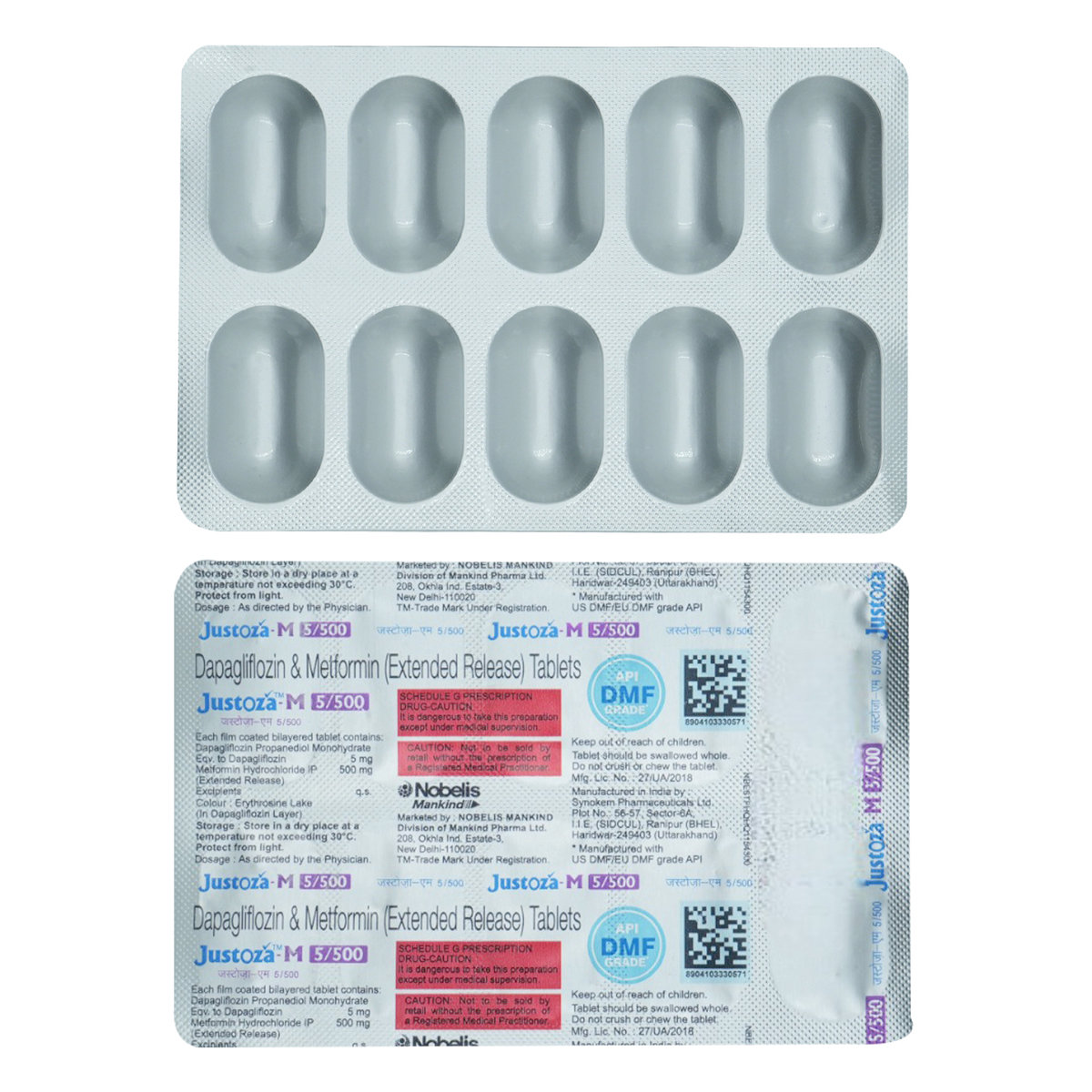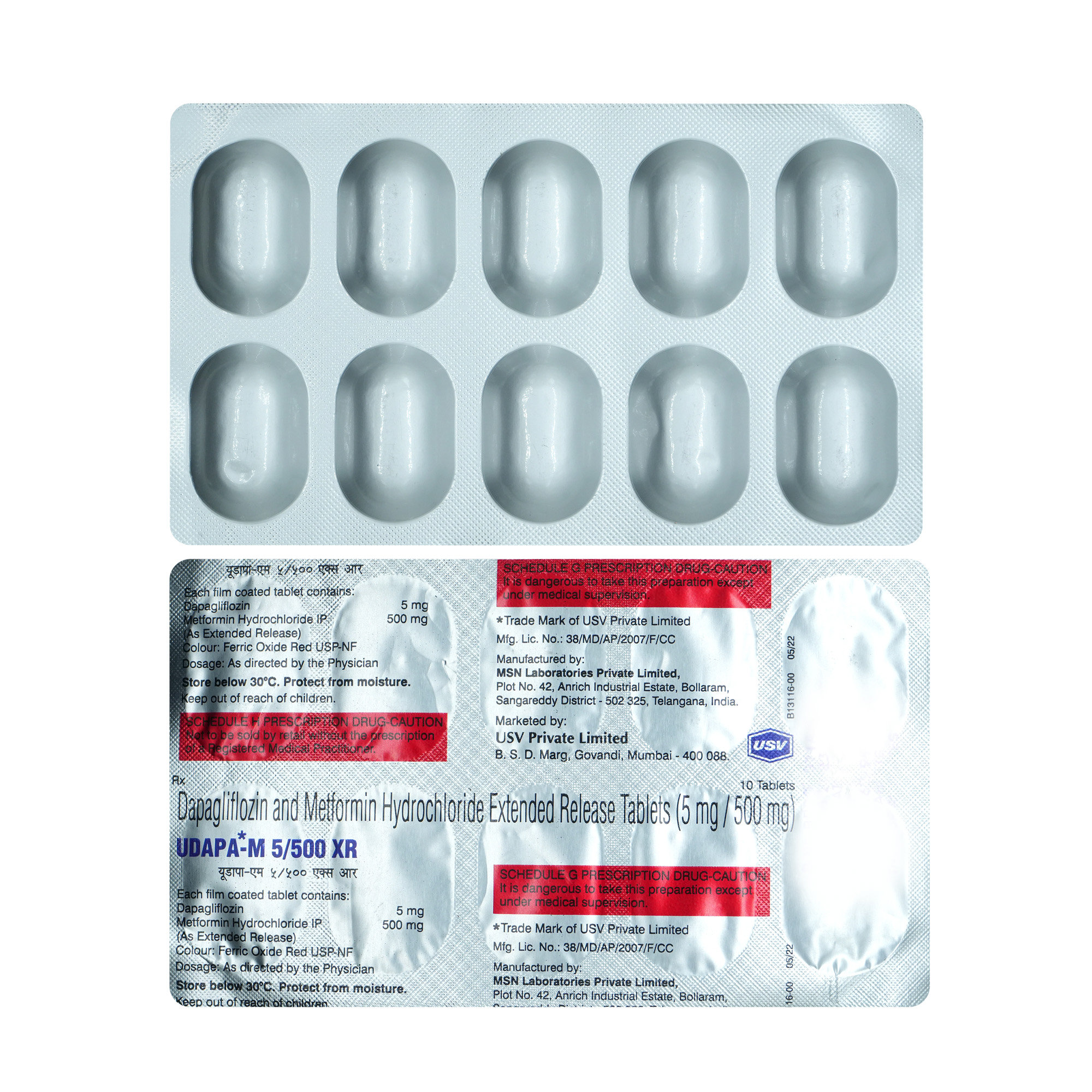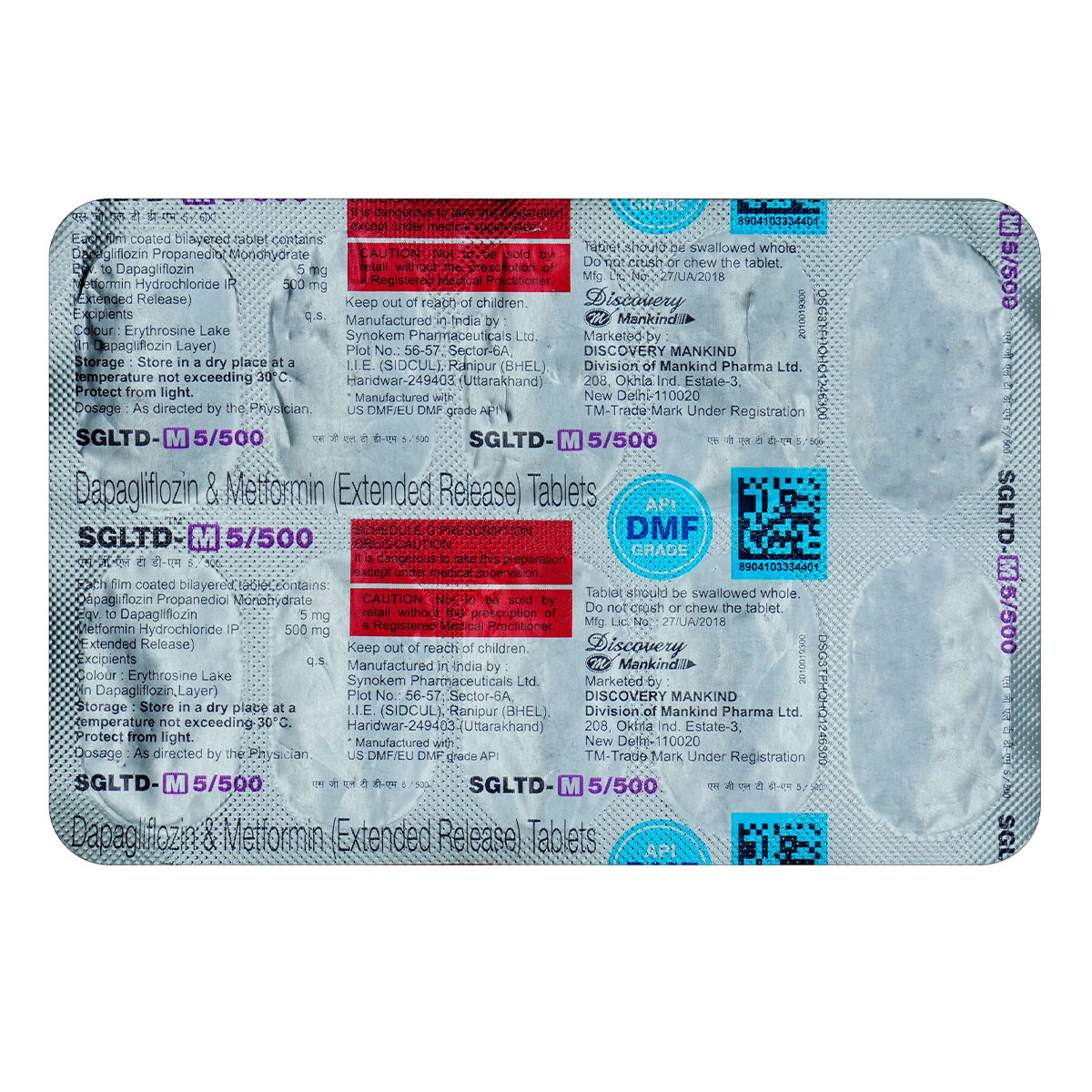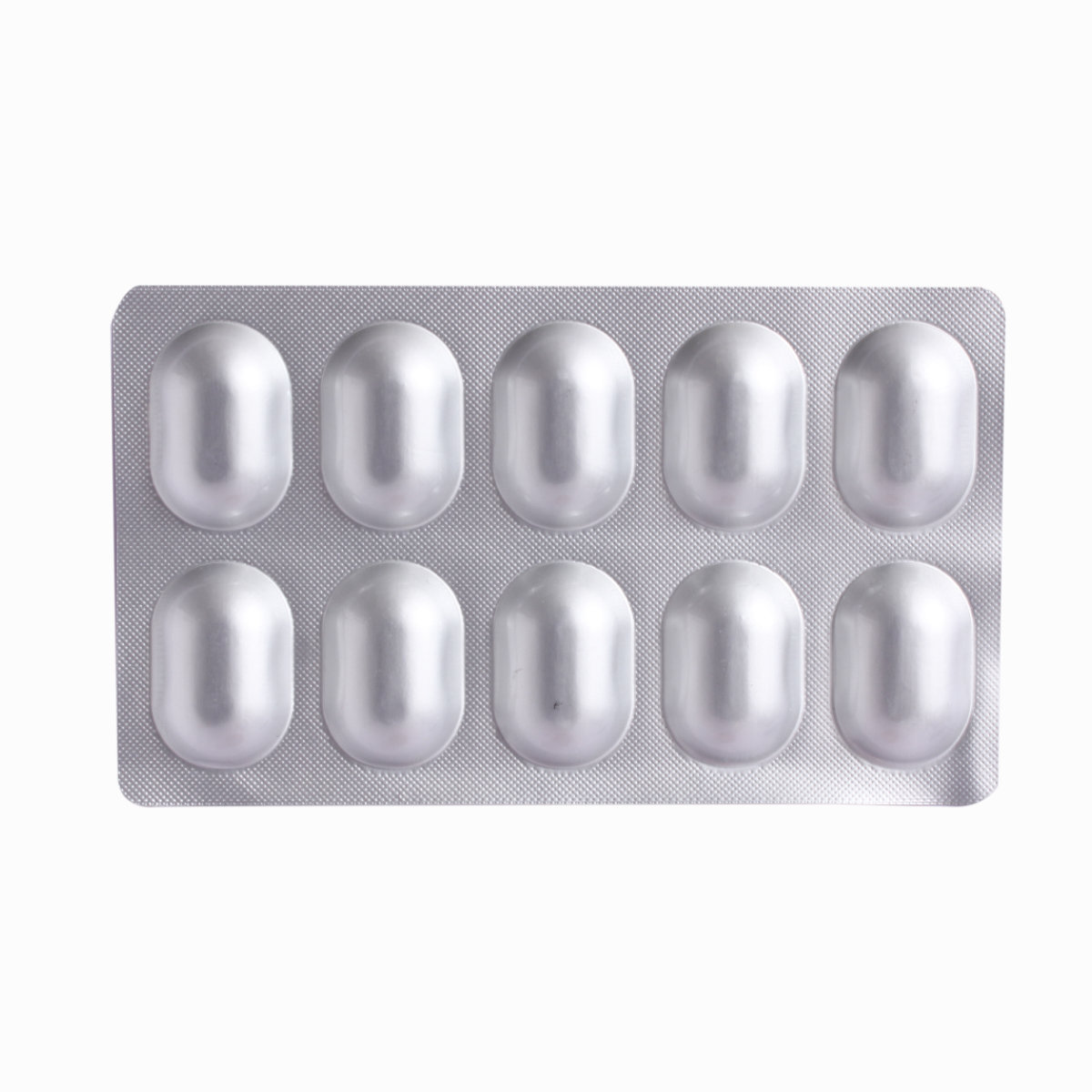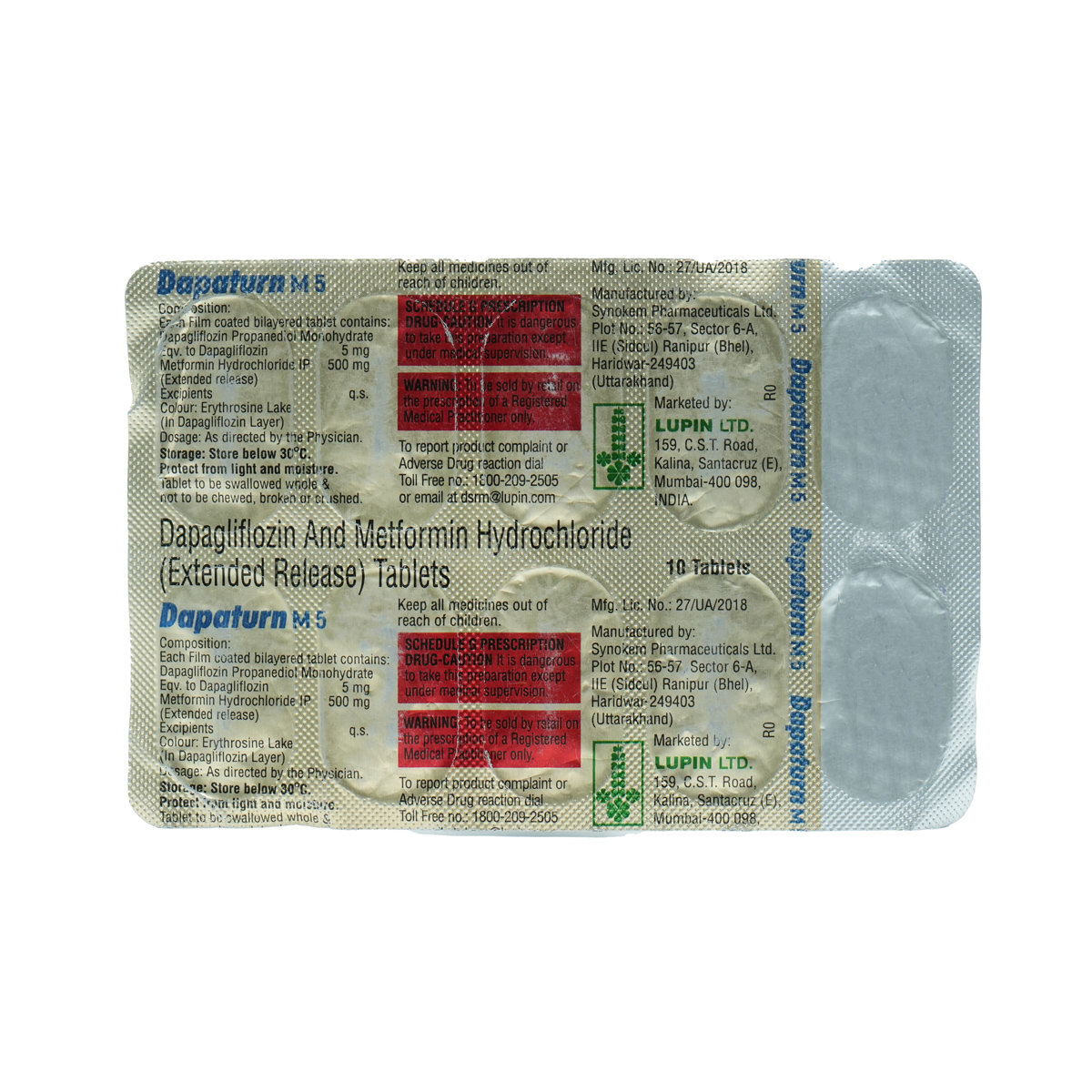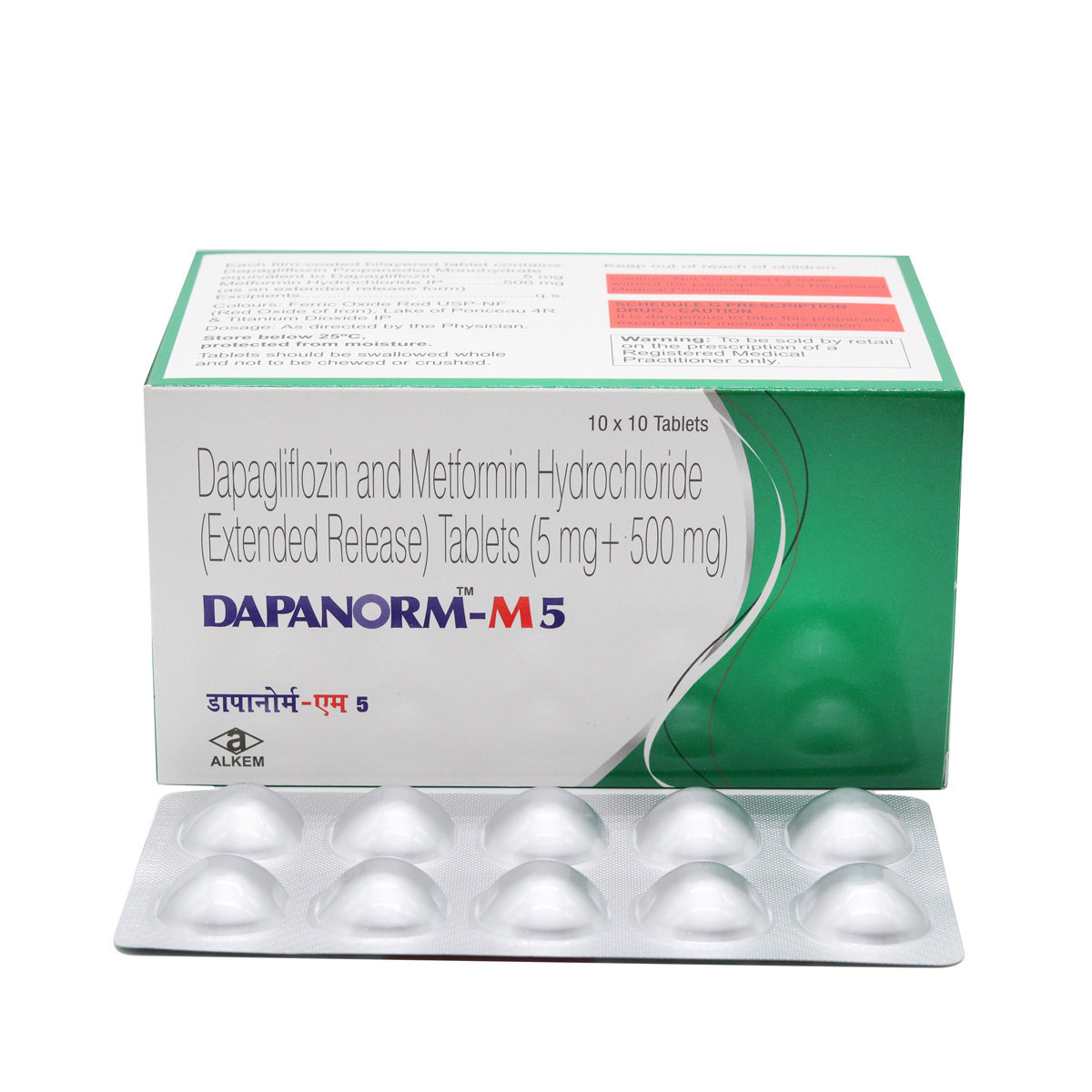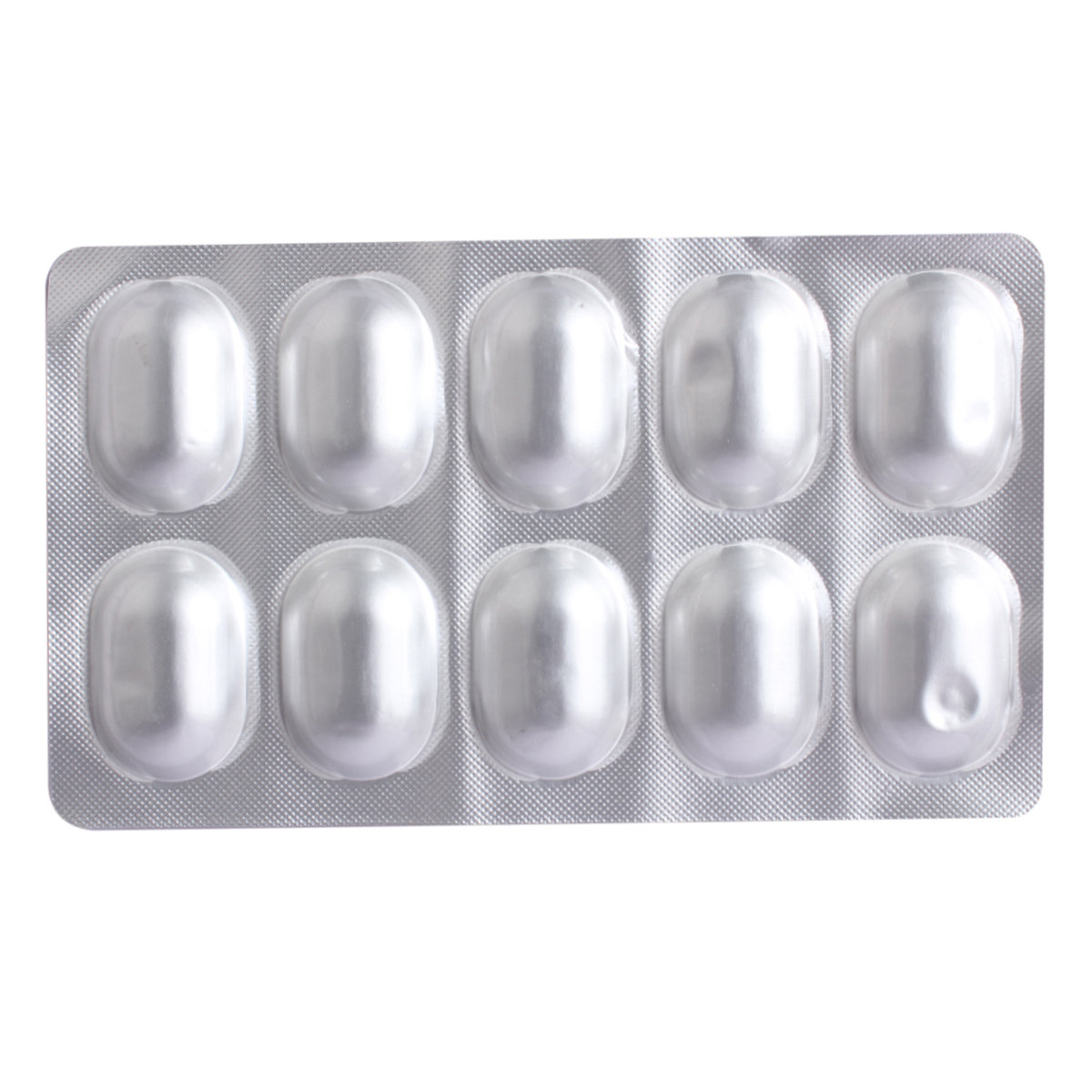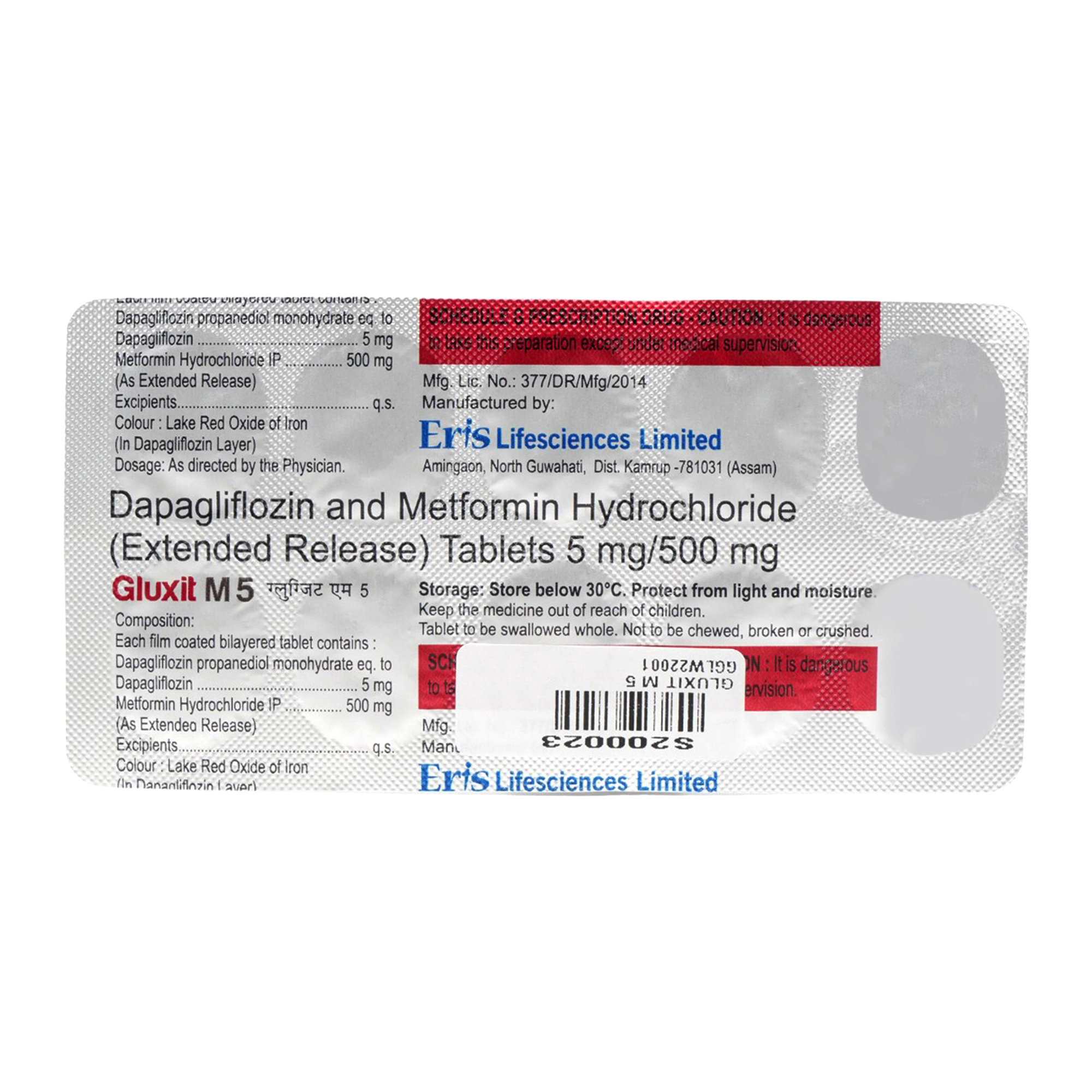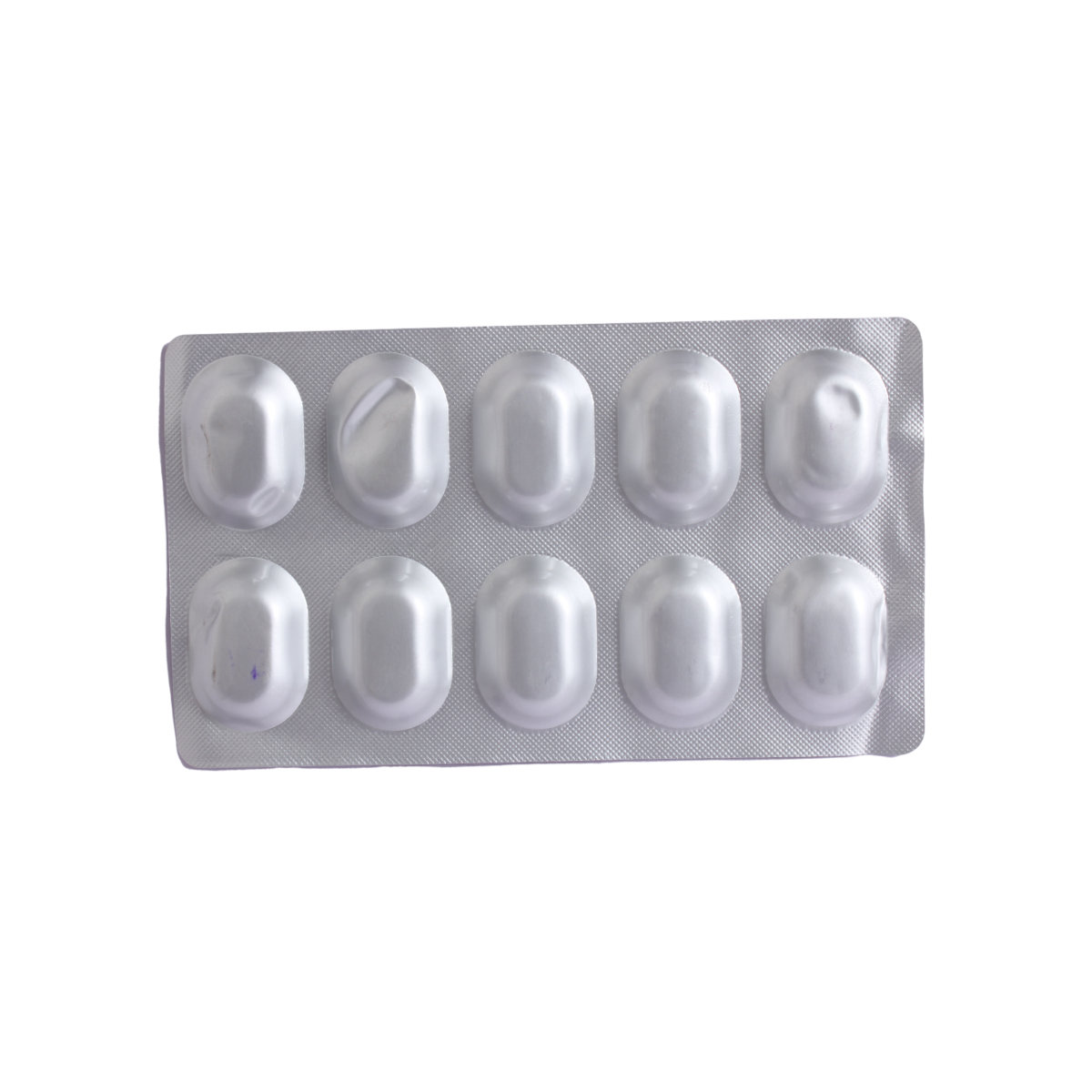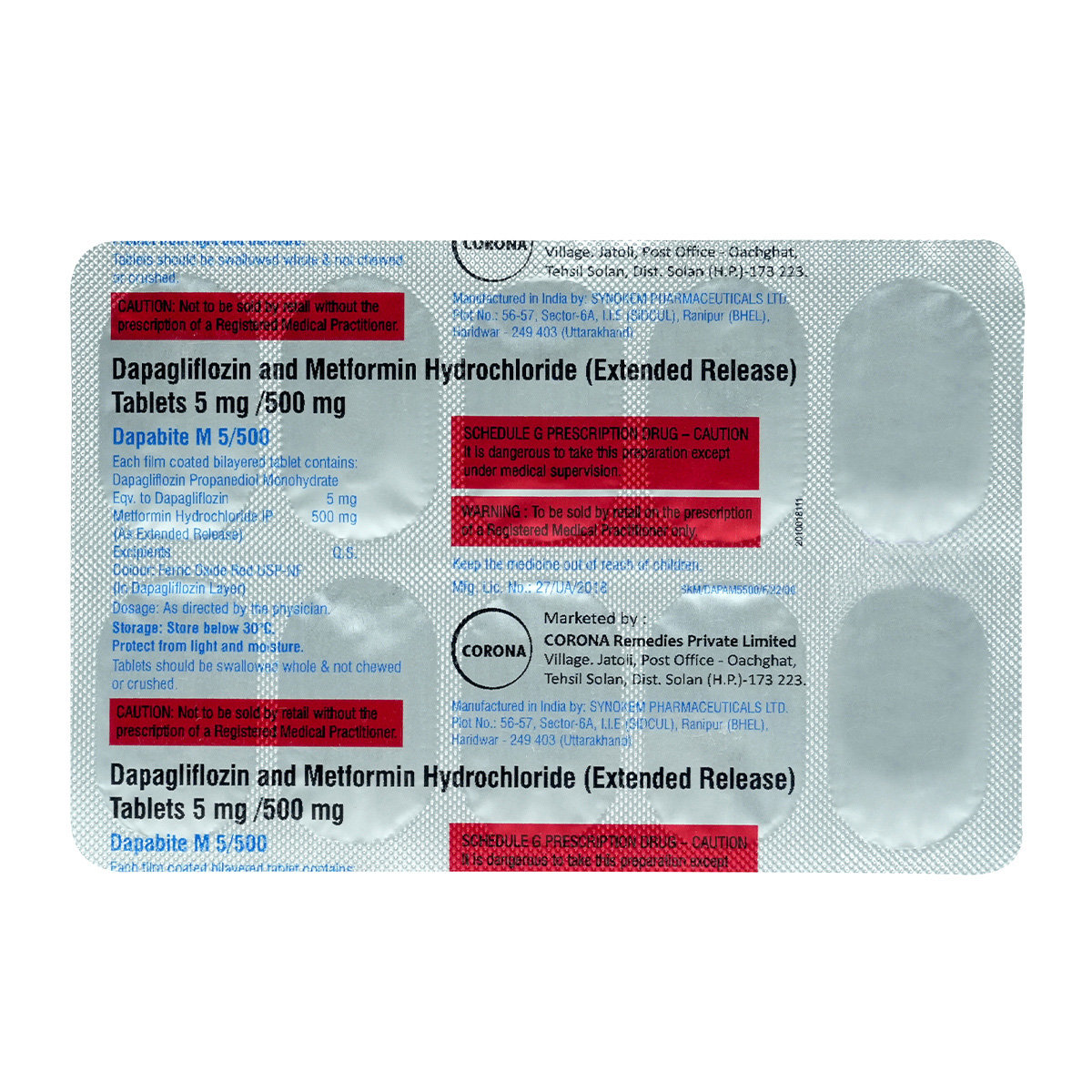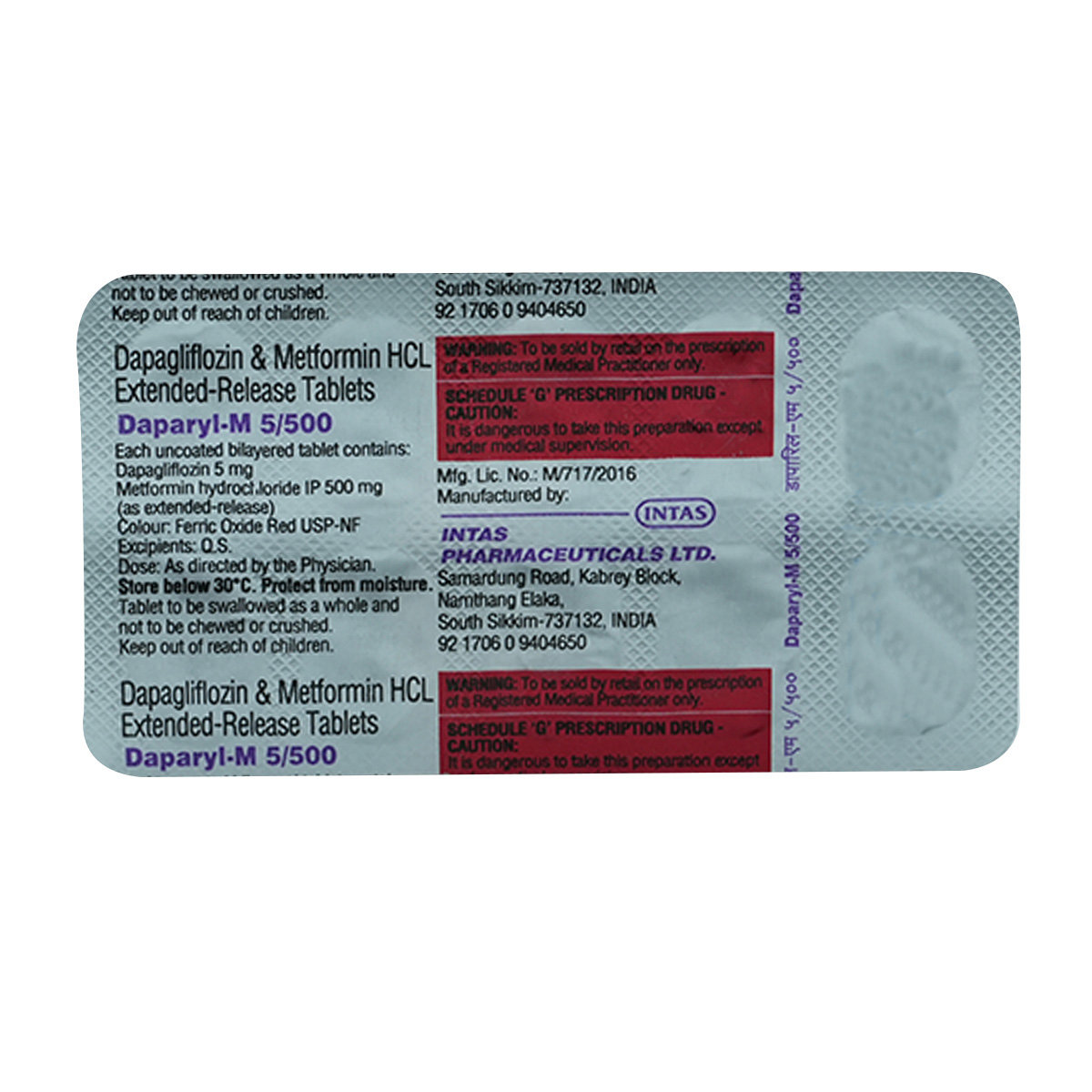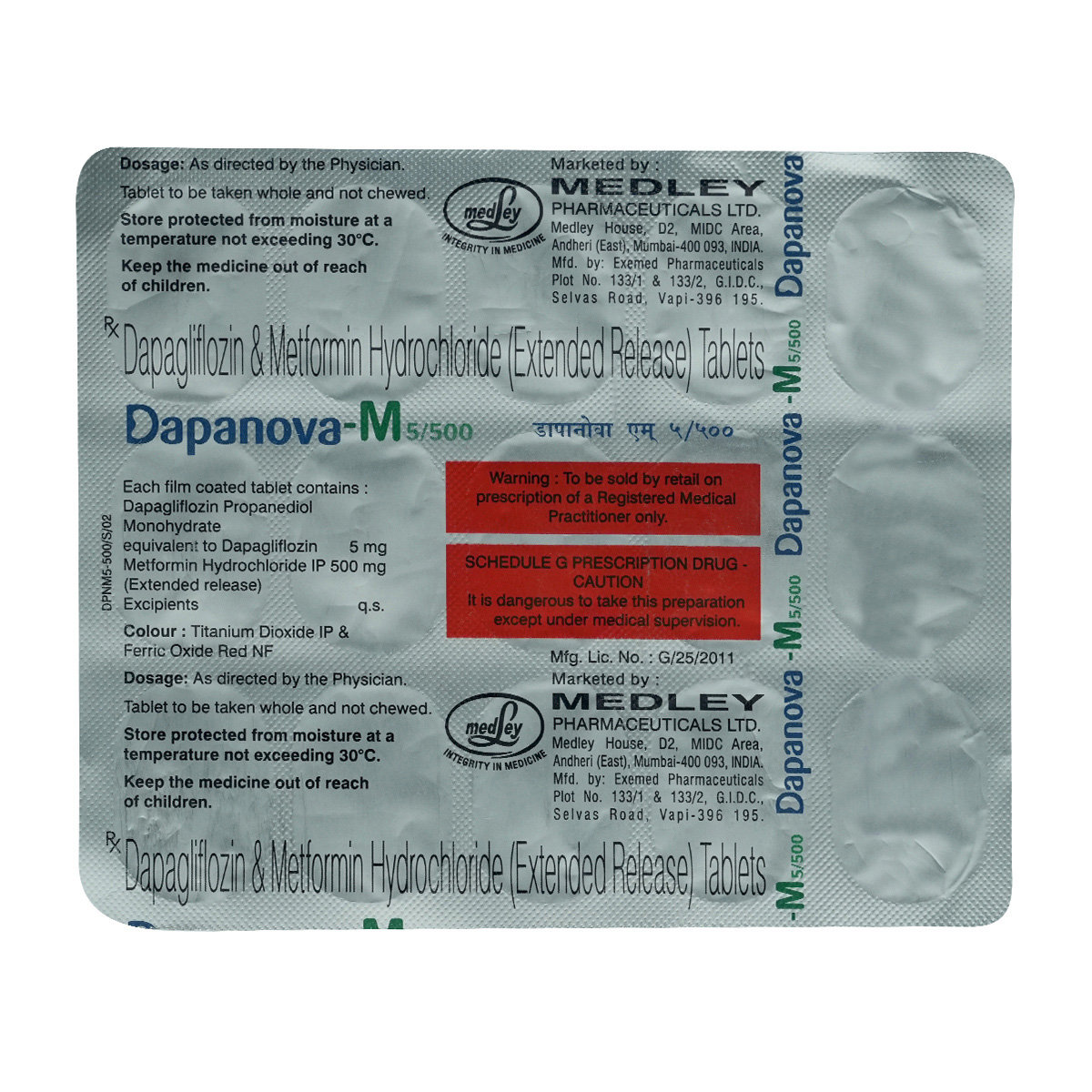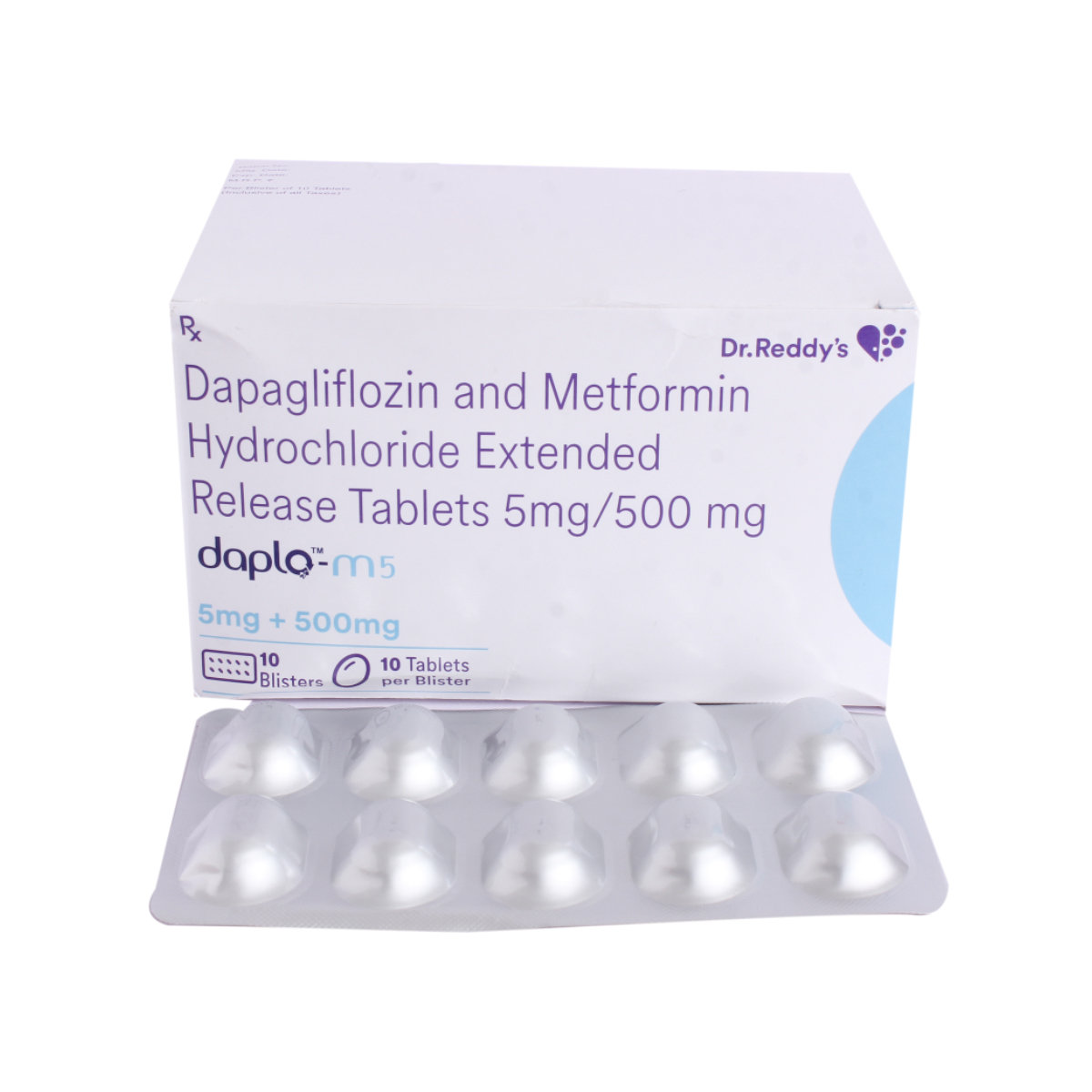Oxramet 5 mg/500 mg Tablet 14's
MRP ₹109.5
(Inclusive of all Taxes)
₹16.4 Cashback (15%)
Provide Delivery Location
Online payment accepted
 Prescription drug
Prescription drugWhats That
Composition :
Manufacturer/Marketer :
Consume Type :
Expires on or after :
Return Policy :
About Oxramet 5/500 mg Tablet
Oxramet 5/500 mg Tablet belongs to the class of 'antidiabetic drugs', primarily used to treat type 2 diabetes mellitus with a proper diet and exercise. Oxramet 5/500 mg Tablet also lowers the risk of heart failure in type 2 diabetic patients with heart diseases. Diabetes mellitus is a metabolic disease that causes high blood sugar levels. It occurs when the insulin (a hormone produced by the beta cells of the pancreas) is resistant in breaking the glucose to produce energy (insulin resistance) or the pancreas (an organ behind the stomach) produce little or no insulin at all. Oxramet 5/500 mg Tablet is not indicated for use in type 1 diabetes.
Oxramet 5/500 mg Tablet is composed of two antidiabetic medicines, namely: Metformin and Dapagliflozin. Metformin belongs to the class of biguanides and manages blood sugar levels, particularly in obese patients. It exhibits a nonpancreatic effect to reduce blood glucose levels without increasing insulin secretion. Dapagliflozin belongs to the class of gliflozins. It works by reducing blood sugar levels by eliminating excess sugars from the body through urine.
Take Oxramet 5/500 mg Tablet as advised by your doctor. Some common side effects of Oxramet 5/500 mg Tablet include nausea, vomiting, diarrhoea, headache, weakness, runny nose, genital infection, dizziness, taste changes, and sore throat. Sometimes, Oxramet 5/500 mg Tablet can cause side effects like lactic acidosis (a rare, but serious metabolic complication of excess lactic acid in the blood that is caused by metformin accumulation) and diabetic ketoacidosis (excess production of blood acids (ketones)). These side effects are not familiar to everyone and vary individually. If you notice any side effects that are not manageable, please consult your doctor.
Oxramet 5/500 mg Tablet may cause hypoglycaemia (low blood sugar); hence it advised to take healthy food with enough calories and avoid heavy exercises. Do not take or stop this medicine, if the doctor did not advise you to do so. Before starting Oxramet 5/500 mg Tablet , let your doctor know if you have any medical history of heart, kidney or liver diseases, breathing problems, blood disorders, dehydration, alcohol use, low blood pressure, and yeast infection of genitals. It is advised to avoid your alcohol intake while using Oxramet 5/500 mg Tablet to decrease the risk of lactic acidosis. Oxramet 5/500 mg Tablet is not recommended for use during the second or third trimester of pregnancy and breastfeeding.
Uses of Oxramet 5/500 mg Tablet
Directions for Use
Key Benefits
Oxramet 5/500 mg Tablet treats type 2 diabetes mellitus and contains Metformin and Dapagliflozin. Metformin is a biguanide and manages blood sugar levels, particularly in obese patients. It exhibits a nonpancreatic effect to reduce blood glucose levels without increasing insulin secretion. It is also known as an insulin sensitizer as it increases the effects of insulin. Metformin is considered a unique antidiabetic drug since it does not cause hypoglycemia (lowered blood sugar levels). Dapagliflozin belongs to the class of gliflozins. It works by reducing blood sugar levels by eliminating excess sugars from the body through urine. Oxramet 5/500 mg Tablet also reduces the risk of heart failure in patients with type 2 diabetes and heart disease. Oxramet 5/500 mg Tablet may be advised with or without other medications along with diet and exercise to control blood sugar levels.
Storage
- Preventing Vomiting (Before it Happens)
- Take medication exactly as prescribed by your doctor. This can help minimize side effects, including vomiting.
- Having a small meal before taking your medication can help reduce nausea and vomiting.
- Talk to your doctor about taking anti-nausea medication along with your prescribed medication.
- Managing Vomiting (If it Happens)
- Try taking ginger in the form of tea, ale, or candy to help alleviate nausea and vomiting.
- What to Do if Vomiting Persists
- Consult your doctor if vomiting continues or worsens, consult the doctor for guidance on adjusting your medication or additional treatment.
- Inform your doctor about the common cold symptoms you're experiencing due to medication.
- Your doctor may adjust your treatment plan, which could include changing your medication, adding new medications, or offering advice on managing your symptoms.
- Practice good hygiene, including frequent handwashing, avoiding close contact with others, and avoiding sharing utensils or personal items.
- Drink plenty of fluids, such as warm water or soup, to help thin out mucus.
- Get plenty of rest and engage in stress-reducing activities to help your body recover. If your symptoms don't subside or worsen, consult your doctor for further guidance.
- Drink water or other clear fluids.
- To prevent worsening of pain, limit intake of tea, coffee, or alcohol.
- Include bland foods like rice, toast, crackers, and rice in your diet.
- Avoid lying down immediately after eating as it may cause indigestion or heartburn.
- Avoid acidic and spicy food as it may cause indigestion.
- If you experience low blood sugar levels, inform your doctor. They will assess the severity and make recommendations for the next actions.
- Your doctor will assess your symptoms, blood sugar levels, and overall health before recommending the best course of action, which may include treatment, lifestyle modifications, or prescription adjustments.
- Follow your doctor's instructions carefully to manage the episode and adjust your treatment plan.
- Make medication adjustments as recommended by your doctor to prevent future episodes.
- Implement diet and lifestyle modifications as your doctor advises to manage low blood sugar levels.
- Monitor your blood sugar levels closely for patterns and changes.
- Track your progress by recording your blood sugar levels, food intake, and physical activity.
- Seek further guidance from your doctor if symptoms persist or worsen so that your treatment plan can be revised.
- Hydrate your body: Drink enough water to prevent dehydration and headaches.
- Calm Your Mind: Deep breathing and meditation can help you relax and relieve stress.
- Rest and Recharge: Sleep for 7-8 hours to reduce headache triggers.
- Take rest: lie down in a quiet, dark environment.
- Cold or warm compresses can help reduce tension.
- Stay Upright: Maintain good posture to keep symptoms from getting worse.
- To treat headaches naturally, try acupuncture or massage therapy.
- Over-the-counter pain relievers include acetaminophen and ibuprofen.
- Prescription Assistance: Speak with your doctor about more substantial drug alternatives.
- Severe Headaches: Seek emergency medical assistance for sudden, severe headaches.
- Frequent Headaches: If you get reoccurring headaches, consult your doctor.
- Headaches with Symptoms: Seek medical attention if your headaches include fever, disorientation, or weakness.
Drug Warnings
Inform your doctor if you take other antidiabetic drugs so that the dosage of Oxramet 5/500 mg Tablet will be adjusted accordingly. Do not abruptly stop taking Oxramet 5/500 mg Tablet midway if the doctor did not advise you. Oxramet 5/500 mg Tablet may cause hypoglycaemia (low blood sugar); hence it is advised to make healthy food with enough calories and avoid heavy exercises. Brief your medical history to doctor if you have any heart, kidney or liver diseases, breathing problems (asthma, obstructive lung diseases), blood problems like anaemia (lack of blood cells), vitamin B12 deficiency, pancreas problems/surgery, dehydration, alcohol use, low blood pressure, and yeast infection of genitals before taking Oxramet 5/500 mg Tablet . Avoid alcohol intake while using Oxramet 5/500 mg Tablet since it may increase the risk of lactic acidosis. Oxramet 5/500 mg Tablet is not recommended for use during the second or third trimester of pregnancy and breastfeeding. Your doctor may advise alternate medications to control your diabetic condition in such cases. Oxramet 5/500 mg Tablet is not recommended for people younger than 18 years of age.
Drug-Drug Interactions
Drug-Drug Interactions
Login/Sign Up
Co-administration of Oxramet 5 mg/500 mg Tablet with Gatifloxacin may sometimes affect blood glucose levels. Both low blood glucose and, less frequently, high blood glucose have been reported.
How to manage the interaction:
Although there is a possible interaction, Gatifloxacin can be taken with Oxramet 5 mg/500 mg Tablet if prescribed by the doctor. Consult the prescriber if you experience symptoms such as nervousness, confusion, headache, dizziness, drowsiness, tremor, nausea, hunger, weakness, perspiration, palpitation, rapid heartbeat, increased urination, increased thirst, and increased hunger. Maintaining blood glucose levels is advised. Do not discontinue the medication without consulting a doctor.
Co-administration of Oxramet 5 mg/500 mg Tablet and Iodamide can increase the risk of lactic acidosis (when the body produces too much lactic acid).
How to manage the interaction:
Taking Oxramet 5 mg/500 mg Tablet with Iodamide is generally avoided as it can result in an interaction, please consult your doctor before taking it.
Co-administration of Oxramet 5 mg/500 mg Tablet and Iobenzamic acid can increase the risk of lactic acidosis (when the body produces too much lactic acid).
How to manage the interaction:
Taking Oxramet 5 mg/500 mg Tablet with Iobenzamic acid is generally avoided as it can result in an interaction, please consult your doctor before taking it.
Co-administration of Oxramet 5 mg/500 mg Tablet with Metrizamide together can cause the risk of lactic acidosis (when the body produces too much lactic acid ).
How to manage the interaction:
Taking Oxramet 5 mg/500 mg Tablet with Metrizamide is generally avoided as it can possibly result in an interaction, it can be taken if a doctor has advised it. However, if you experience headaches, muscle cramps or pain, contact a doctor immediately. Do not discontinue any medications without consulting a doctor.
Co-administration of Iopydol with Oxramet 5 mg/500 mg Tablet can increase the risk of side effects.
How to manage the interaction:
Taking Oxramet 5 mg/500 mg Tablet with Iopydol is not recommended, please consult your doctor before taking it.
Co-administration of Oxramet 5 mg/500 mg Tablet and Iocarmic acid can increase the risk of lactic acidosis (when the body produces too much lactic acid).
How to manage the interaction:
Taking Oxramet 5 mg/500 mg Tablet with Iocarmic acid is generally avoided as it can result in an interaction. please consult your doctor before taking it.
Co-administration of Iodixanol with Oxramet 5 mg/500 mg Tablet can increase the risk of side effects.
How to manage the interaction:
Taking Oxramet 5 mg/500 mg Tablet with Iodixanol is not recommended, please consult a doctor before taking it. Do not discontinue the medications without consulting a doctor.
Co-administration of Oxramet 5 mg/500 mg Tablet and Iobitridol can increase the risk of lactic acidosis (when the body produces too much lactic acid).
How to manage the interaction:
Taking Oxramet 5 mg/500 mg Tablet with Iobitridol is generally avoided as it can result in an interaction. Please consult your doctor before taking it.
Co-administration of Ioversol with Oxramet 5 mg/500 mg Tablet can increase the risk of side effects.
How to manage the interaction:
Taking Oxramet 5 mg/500 mg Tablet with Ioversol is not recommended, please consult your doctor before taking it.
Co-administration of Iopamidol with Oxramet 5 mg/500 mg Tablet can increase the risk of side effects.
How to manage the interaction:
Taking Oxramet 5 mg/500 mg Tablet with Iopamidol is not recommended, please consult a doctor before taking it. Do not discontinue the medications without consulting a doctor.
Drug-Food Interactions
Drug-Food Interactions
Login/Sign Up
Diet & Lifestyle Advise
- Take the medication as directed by the doctor and at regular intervals if you take Oxramet 5/500 mg Tablet for more than once per day. Do not use other over the counter medications, herbal or vitamin supplements without informing your pharmacist or doctor when you take Oxramet 5/500 mg Tablet .
- Maintain a fibre-rich diet and include healthy carbohydrates from fruits, vegetables and whole grains to maintain your blood glucose levels.
- Eat at regular intervals.
- Keep a check on your weight and exercise regularly to keep your heart healthy.
- Your doctor also guides you on noticing and managing the early symptoms of high/low blood sugar levels.
- Gastrointestinal side effects can be managed with simple modifications in your lifestyle. These include cutting down on sugars and fatty foods, avoiding carbonated drinks and foods that cause gas.
Side Effects of Oxramet 5/500 mg Tablet
- Nausea
- Vomiting
- Diarrhoea
- Headache
- Weakness
- Runny nose
- Genital infection
- Dizziness
- Taste changes
- Sore throat
- Lactic acidosis (build-up of lactic acid in the bloodstream) (rare)
- Diabetic ketoacidosis (a diabetic complication with excess blood acids) (rare)
Habit Forming
Therapeutic Class
All Substitutes & Brand Comparisons
RX
Dapamac-M 5 mg/500 mg Tablet 15's
Macleods Pharmaceuticals Ltd
₹100
(₹6.0 per unit)
14% CHEAPERRX
Justoza-M 5/500 Tablet 10's
Mankind Pharma Pvt Ltd
₹72
(₹6.48 per unit)
7% CHEAPERRX
Udapa-M 5/500 XR Tablet 10's
USV Pvt Ltd
₹78
(₹7.02 per unit)
Author Details
We provide you with authentic, trustworthy and relevant information
Drug-Diseases Interactions
Drug-Diseases Interactions
Login/Sign Up
FAQs
Drug-Drug Interactions Checker List
- HYDROCHLOROTHIAZIDE
- IBUPROFEN
- CELECOXIB
- CIMETIDINE
Special Advise
- It is advised to monitor your blood sugar levels regularly.
- If you need to undergo any x-ray or CT scan using a dye that should be injected into your veins, your doctor may suggest you stop taking Oxramet 5/500 mg Tablet temporarily.
- Regular monitoring of kidney functioning is advised while using Oxramet 5/500 mg Tablet .
- Oxramet 5/500 mg Tablet may make you test positive for a urine glucose test, hence inform your doctor in advance that you take Oxramet 5/500 mg Tablet .
Disease/Condition Glossary
Diabetes mellitus, also known as adult-onset diabetes, is a metabolic disease that causes high blood sugar levels. It is type 2 diabetes and occurs when the insulin (a hormone produced by the beta cells of the pancreas) is resistant in breaking the glucose to produce energy (insulin resistance) or the pancreas (an organ behind the stomach) produces little or no insulin at all. This disease mostly occurs in people aged above 40 years, but can also occur in childhood based on the risk factors. The treatment includes oral glucose-lowering medicines and insulin shots.

Have a query?
Alcohol
Safe if prescribed
It is advised to avoid alcohol intake since it may worsen the side effects like lactic acidosis and increase the risk of developing low blood sugar levels.
Pregnancy
Consult your doctor
Dapagliflozin in Oxramet 5/500 mg Tablet is not recommended during the second or third trimester of pregnancy. Your doctor may suggest other medications to control your blood sugar levels. Please consult your doctor before starting Oxramet 5/500 mg Tablet if you are pregnant or planning to conceive.
Breast Feeding
Consult your doctor
Oxramet 5/500 mg Tablet may be unsafe to use during breastfeeding since it is excreted into the breast milk. Please seek medical advice for further information.
Driving
Safe if prescribed
Your driving may be affected if your blood sugar levels are too high or too low. Do not drive or operate machinery if you also experience blurred vision, dizziness or drowsiness due to extremely low or high blood sugar.
Liver
Consult your doctor
Let your doctor know if you have any history of liver diseases or hepatic impairment when prescribed Oxramet 5/500 mg Tablet .
Kidney
Consult your doctor
Oxramet 5/500 mg Tablet is contraindicated in patients with severe renal impairment/kidney diseases. Let your doctor know if you have any history of kidney diseases when you are prescribed Oxramet 5/500 mg Tablet .
Children
Safe if prescribed
Oxramet 5/500 mg Tablet is not recommended for people younger than 18 years of age.
Recommended for a 30-day course: 3 Strips

